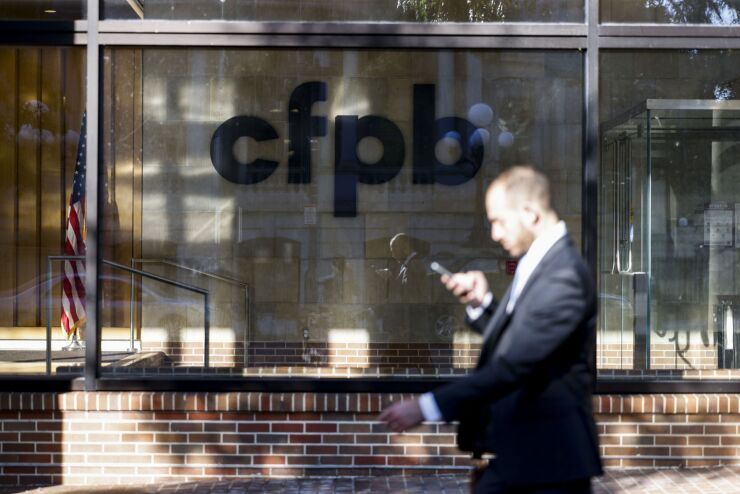
A federal appeals court ruled that the Consumer Financial Protection Bureau has broad authority to discourage discrimination to combat redlining, delivering a major victory to the bureau in a contentious case,
A three-judge panel of the U.S. Court of Appeals for the 7th Circuit ruled that the Equal Credit Opportunity Act applies not just to credit applicants but also to prospective applicants.
The CFPB filed a redlining lawsuit against Townstone Financial in 2020 alleging that the company's CEO Barry Sturner made disparaging remarks about Blacks on a talk-radio infomercial that discouraged minorities from applying for home loans. At issue in the case was whether Sturner had discouraged Black prospective applicants from applying for mortgage loans with Townstone, in violation of ECOA and Regulation B — which prohibits creditors from discriminating on the basis of sex, race, color, religion, national origin, age or marital status.
Congress had indicated that the law must be construed broadly to serve the purpose of ending discrimination in credit applications, the judges said.
"An analysis of the text of the ECOA as a whole makes clear that the text prohibits not only outright discrimination against applicants for credit, but also the discouragement of prospective applicants for credit," the judges wrote
The CFPB had cited as evidence of discrimination comments that Sturner made on the radio commercial in which he
The CFPB had identified five instances in which Sturner and other hosts made statements that would discourage Black prospective applicants from applying for mortgage loans. In addition, the bureau alleged that from 2014 to 2017, Townstone received fewer mortgage applications from Black applicants, fewer mortgage applications for properties in neighborhoods with a high-Black population and fewer mortgage applications for properties in neighborhoods with a majority of Black residents.
Last year, the United States District Court for the Northern District of Illinois
"The district court held that the ECOA does not authorize the imposition of liability for the discouragement of prospective applicants. We take a different view," the judges wrote.
"The term "applicant" cannot be read in a crabbed fashion that frustrates the obvious statutorily articulated purpose of the statute," the judges wrote. "Indeed, the ECOA's scope of prohibition prohibits discrimination 'with respect to any aspect of a credit transaction.' "
The case was reversed and remanded back to the district court.
"Discouraging applicants is the first tool in the book of redlining. A discriminatory lender may feel like using a 'Whites Only' sign is the best way to accomplish their goal," said Adam Rust, director of financial services at the Consumer Federation of America. "I think it was common sense to read the law and come to this conclusion."
The CFPB did not immediately respond to a request for comment.
The Pacific Legal Foundation, which represented Townstone, had argued that Sturner was protected under the First Amendment.
"We're disappointed in the decision, which offered only a cursory analysis of the relevant statutes and ignored completely Townstone's First Amendment arguments," the public interest law firm said in a statement. "We are considering our options for further review."
Townstone may appeal the case to the full 7th Circuit or to the Supreme Court, experts said.



